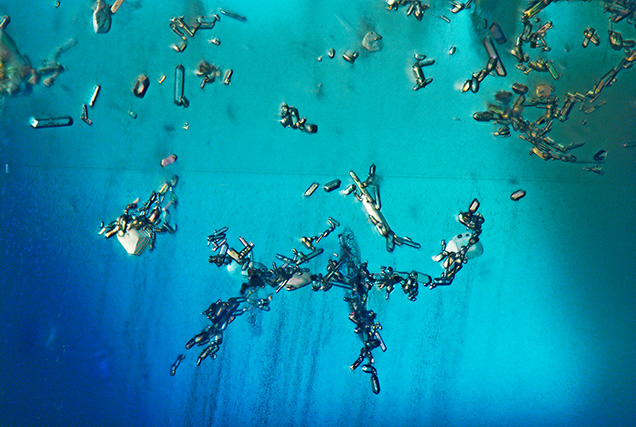Zircon Cluster in Ethiopian Sapphire

Ethiopia is a known producer of opal, emerald, and commercial-grade sapphire. In March 2018, a GIA team collected a 1.911 ct blue sapphire from the Ch’ila mining area in the Tigray region. The inclusion scene shows a cluster of small transparent euhedral crystals with high relief. Raman spectroscopy identified the smaller crystals as zircon, but the clusters also contain some larger rounded monazite crystals (see above). Zircon is a common inclusion in blue sapphire, usually associated with metamorphic sources such as Myanmar, Sri Lanka, or Madagascar. Zircon inclusions from those deposits typically have more rounded shapes (E.J. Gübelin and J.I. Koivula, Photoatlas of Inclusions in Gemstones, Vol. 3, Opinio Publishers, Basel, Switzerland, 2008, pp. 188–308). The sapphire deposit in northern Ethiopia is related to alkali basalt, similar to the deposits in Australia, Nigeria, or Thailand. These sources rarely show clusters of euhedral zircon crystals. The presence of these zircon clusters might help to separate Ethiopian sapphire from other basalt-related sapphire sources.



